Benefits of a Family Dentist It is recommended that you look for a family dentist who can address the needs of all individual members, including your children (whether toddlers or young adults). It is important that every member of your family visits the dentist every six months. Family dentists can help by providing appropriate treatment …
Benefits of a Family Dentist
It is recommended that you look for a family dentist who can address the needs of all individual members, including your children (whether toddlers
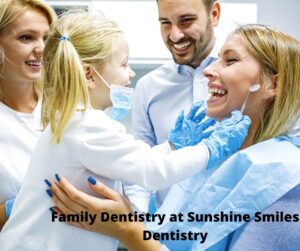
or young adults). It is important that every member of your family visits the dentist every six months. Family dentists can help by providing appropriate treatment for all age groups. They are useful whether your elderly mother is learning to adapt to her dentures or your toddler is teething.
Track Dental Milestones for Your Toddler
Professional dental evaluation and care during the early years of your child’s life would ensure their tiny teeth and jaws develop with good oral health. Family dentists are in a position to help with advice and preventative maintenance. Your family dentist shall explain the critical role of teeth in a baby’s development, including chewing habits and speech. The family dentist will ensure through regular check-ups that your toddler is developing healthy teeth. They would also use treatments, such as dental fillings and sealants, wherever necessary to prevent the need for invasive procedures at a later date.
Spotting Genetic Dental Issues
It becomes easier for a dentist to identify genetic trends in gum problems and tooth decay when all members of the family visit the same dental care provider. The dentist shall be in a position to provide special care and attention or watch for early signs of issues, when the parents show the same problems. For instance, if parents suffer from tooth decay or a similar problem, the dentist shall offer preventative maintenance to prevent the issues from developing in the child.
It is possible to avoid dental problems that are inherited or genetic with early preventative care and treatment. Family dentists are knowledgeable in spotting trends and signs. This can help avoid dental discomfort in your children and can also go a long way in saving money on dental bills.
Visits Become a Breeze
Packed schedules can make it difficult to make separate dentist appointments for individual members of a family. It is also a time-wastage to go to the dentist separately. You can save a considerable amount of time conveniently when you have your semi-annual oral health-checkup along with your children or elderly parents. This benefit is only provided by family dentists who have the experience and know-how to treat all age groups. In addition, elderly parents and children tend to feel less stressed when they know that you are in for a treatment at the same dental office.
Avail Comprehensive Benefits and Services at our dental clinic
Family dentists offer a broad range of dental services. You can visit family dentists when you are in need of minor cleaning and your teenage son requires braces. Your family dentist would be able to handle all your troubles at the same time. You can expect high quality care when you visit a family dental care provider. They can take care of all the dental needs that your family has.
Searching the right family dentist in Roswell GA can be troublesome, especially if you  don’t know where to start. Schedule an appointment at Sunshine Smiles Dentistry, Dentist near Roswell, Georgia to understand how we can better serve you and your family. Give us a call at (770) 998-8116 or contact us online.
don’t know where to start. Schedule an appointment at Sunshine Smiles Dentistry, Dentist near Roswell, Georgia to understand how we can better serve you and your family. Give us a call at (770) 998-8116 or contact us online.
Driving from Alpharetta GA to Sunshine Smiles Dentistry:
Drive on GA-9 S/S Main St
Turn Left on Wills Rd
Turn right on Old Roswell Rd
At the traffic circle continue straight
Turn right onto Westside Pkwy
Continue onto Old Roswell Rd
Continue onto Grimes Bridge Rd
Turn left on Market Place
Sunshine Smiles Dentistry will be on your Left
Driving from Johns Creek GA to Sunshine Smiles Dentistry:
Drive on Old Alabama Rd
Turn right onto Holcomb Bridge Rd
Turn left on Market Place
Sunshine Smiles Dentistry will be on your right
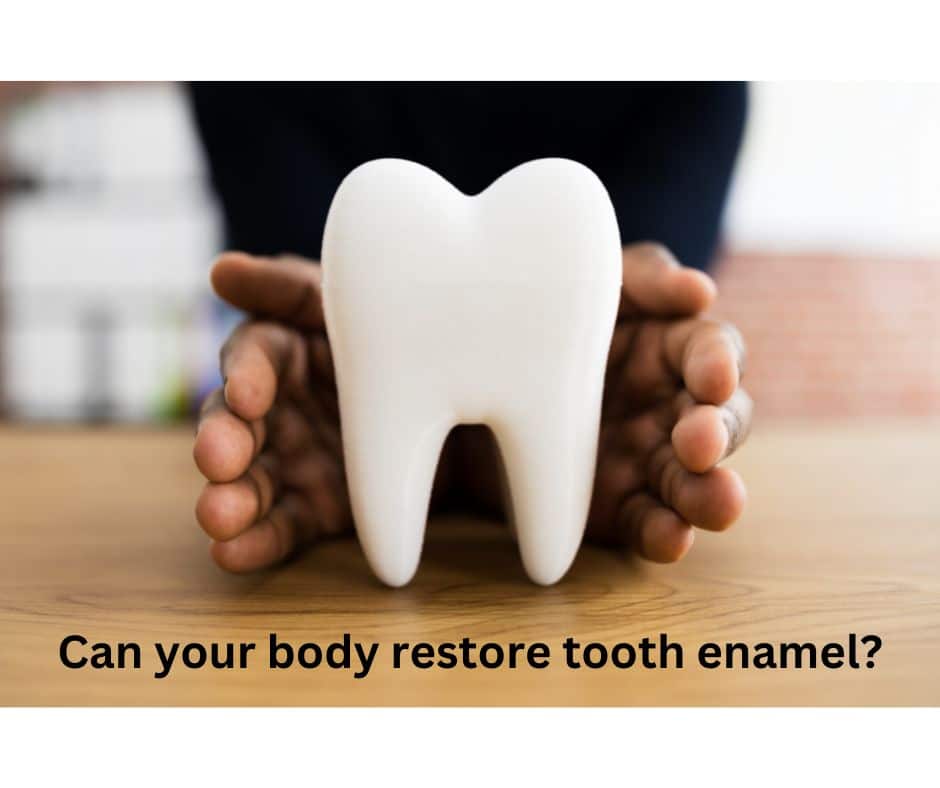
The answer to the question: Can your body restore Tooth Enamel is: No! Human body cannot naturally restore tooth enamel. Once the enamel is worn out or damaged, it cannot grow back or self-repair. The reason is that dental enamel in a baby develops through a complex mineralization process regulated by a thin layer of cells called ameloblasts.
As the enamel matures and teeth eruption takes place, these cells (ameloblasts) either die or get integrated with the gum tissue. What is left behind on the tooth surface is a hard mineralized compound that cannot regenerate itself – if damaged – because it has no cells remaining that could re-grow or multiply.
But here’s the good part. Tooth enamel is the strongest, hardest and the most resilient substance in your body (yes, it is even stronger than your bones!) Nature’s flawless biological design has ensured that as an omnivore you can keep biting, chewing and chomping on all kinds of natural foods – and your tough dental enamel will survive a lifetime of demanding work in a harsh oral environment.
Why Does Tooth Enamel Erode or Get Damaged?
While the enamel is a robust and powerful protection for your teeth, it can gradually lose the battle against the forces of dental decay and damage resulting from excessive exposure to sugary, acidic and processed foods, carbonated drinks, hard substances, and poor oral hygiene that allows for an invasion of harmful bacteria.
According to the CDC figures, 26% of American adults live with untreated tooth decay, and more than half of all children between the age of six and eight have suffered at least one cavity in their baby teeth. Bruxism or teeth grinding among both kids and adults is another cause of enamel erosion.
Is Re-mineralization of Teeth Enamel Possible?
Yes, the natural re-mineralization of tooth enamel continually takes place as your body supplies vital nutrients and minerals, such as calcium, phosphorus and fluoride to your teeth. In other words, while your body cannot regenerate lost enamel, it can strengthen and restore the existing enamel through constant re-mineralization.
You and your dentist can promote and reinforce this natural process of enamel re-mineralization in the following ways:
- Visit your dentist twice a year for a dental exam and professional dental cleanings.
- Follow your dentist’s advice on what type of fluoride toothpaste you should use and brush with it twice daily.
- Use floss or another inter-dental device your dentist may recommend for daily cleaning between your teeth.
- Undergo timely dental treatments for any oral health conditions or tooth decay that may be hastening enamel erosion.
- Ask your local dentist near you for what type of foods can provide more nutrition to your teeth and what type of foods and drinks you should avoid.
- Stay sufficiently hydrated at all times to generate adequate saliva flow, which helps fight tooth decay.
Restorative Dental Techniques to Protect or Repair Tooth Enamel
An experienced and resourceful dentist will not be able to regenerate your damaged or eroded tooth enamel, but they can provide you safe and proven dental solutions to preserve or repair the enamel. Here are some of the treatment options your dentist may be able to offer:
Dental Fillings. Our North Atlanta Dentist does these!
If your dentist detects a developing cavity in your tooth, they can take preventive steps to remove the decay and fill the cavity with a sustainable and biocompatible material. The filling may be composed of one or more materials, such as porcelain, composite resin, or glass ionomer, which are tooth-colored components and will not be conspicuously visible.
Dental Bonding
This technique is used to repair cracked, chipped, discolored or decaying teeth, close minor gaps between teeth, or protect an exposed part of the tooth root in case of gum recession. A durable synthetic resin material (tooth-colored) is applied to the affected tooth and hardened with a medical light so that it bonds strongly with the tooth. Bonding can help preserve or repair the damage caused to the teeth enamel.
Dental Veneers
Tooth veneers are customized, ultra-thin shells that are placed over the front surface of stained, discolored, chipped, cracked, spaced or imperfect teeth to restore a healthy and attractive smile. Veneers can be made from tooth-colored composite resin or porcelain materials. High quality veneers can help protect tooth enamel and prevent future damage. Contact Sunshine Smiles Dentistry for dental veneers near Johns Creek, GA today!
Dental Crowns. Visit Sunshine Smiles Dentistry for crowns
If the tooth structure has been compromised because of severe decay, a root canal treatment, or tooth trauma, a custom-crafted “cap” called a dental crown can be placed over the weakened tooth. This will not only restore the appearance, strength, size and shape of the tooth, but will also serve as a reliable solution for damaged or lost tooth enamel. Contact Sunshine Smiles Dentistry If you are looking for a dental crown in Roswell, GA.
Vital Nutrients in Your Daily Diet to Strengthen Tooth Enamel
A dedicated dentist can educate you about healthy dietary choices that can help strengthen dental enamel and support its natural re-mineralization process. Here are six vital minerals and vitamins you should include in your daily diet in consultation with your dentist:
- Calcium: This is the principal mineral your body needs to help strengthen your bones and teeth enamel. Milk, cheese, yogurt and other dairy products as well as almonds, beans, and leafy veggies are excellent sources of calcium.
- Phosphorus: After calcium, this is the second most important mineral that works to preserve and strengthen dental enamel. Meats, fish, poultry and eggs, beans, nuts, dairy products, and bananas are some of the well-known sources of phosphorus.
- Vitamin D: This is an essential vitamin to strengthen your tooth enamel for two reasons. It supports the absorption of calcium to fortify your bones and teeth. Secondly, it improves the mineral density of your teeth enamel. Sun is a natural source of vitamin D.
- Vitamin A: Your dental enamel contains a protein called keratin. Vitamin A helps in the production and preservation of keratin to support healthy enamel. Meats, fish, egg, carrots, cantaloupe, sweet potatoes, and dairy products are rich in vitamin A.
- Vitamin C: Dentin is a calcified tissue that lies beneath your tooth enamel. Vitamin C performs a key role in the collagen synthesis process of dentin and helps maintain tooth enamel. Citrus fruits such as oranges, grapefruit and kiwi fruit, broccoli and Brussels sprouts are rich in vitamin C.
- Vitamin K2: This is a powerful calcium binder and it also enhances the saliva buffering capacity in the mouth. Moreover, it fights the acid generated by the oral bacteria flora that can harm tooth enamel irreversibly. Beef liver, chicken, seafood, cheese and egg yolk are good sources of vitamin K2.
Researchers are Seeking Ways to Rebuild Tooth Enamel
While it is challenging to scientifically reengineer the complex tooth enamel structure, researchers have been working on this idea for years. A study published in the Science Advances journal showed that researchers have succeeded in reproducing the key constituent of tooth enamel – calcium phosphate – in microscopic clusters as tiny as 1.5 nanometers to mimic the natural enamel.
Researchers at the University of Washington are using genetic engineering to recreate the foundational elements of tooth enamel – calcium and phosphorus ions and peptides. Researchers are aiming to utilize this process to develop lozenges that can be used to repair or rebuild damaged tooth enamel.
A University of Michigan research team is attempting to artificially produce dental enamel by combining hydroxyapatite mineral (which is a natural component of the actual enamel) with a malleable metal coating. The new material mimics the hardness and elasticity of natural enamel, but it needs further refinement to come close to the real thing.
Stem cell researchers have developed a new 3D model that may help regenerate ameloblasts (the natural cells which contribute to enamel formation in a baby) at some point in the future, and eventually contribute to the rebuilding of dental enamel. The study results were published in the journal Cellular and Molecular Life Sciences.
Contact Sunshine Smiles Dentistry for dental care near Roswell, Georgia
While the human body cannot rebuild or repair tooth enamel, future innovations in regenerative dentistry promise life-altering solutions to enhance oral health. Sunshine Smiles Dentistry, Dentist near Roswell Georgia, led by Dr. Suvidha Sachdeva, is at the leading edge of advancements in the dental field.
We are constantly updated with the latest treatments and solutions to resolve complex dental problems most effectively for our patients. We see Spanish speaking patients looking for dentista cerca de mi. To book an appointment at our award-winning dental practice in Roswell, GA, use this link or call us at (770) 998-8116.

What is Roswell GA known for is a question that many ask! The people of this city are nice, there are lots of amazing parks and greenspace and there is always something to do! Sunshine Smiles Dentistry is located in Roswell, GA and has been proud to call Roswell our home for several years.
Sunshine Smiles Dentistry moved to its new location on 365 Market Pl ste 100, Roswell, GA 30075.
Roswell, Georgia is a city in North Fulton County, Georgia. It is a close suburb of Atlanta and is located 20 miles north of Atlanta. Roswell boasts of historical sites, beautiful downtown and several parks. The city is on the Chattahoochee River which makes it popular for several outdoor activities. Roswell King and five other coastal families: the Bullochs, Dunwodys, Lewises, Pratts, and Smiths built elegant mansions in the Roswell area. Our dental clinic moved to its current location on Market place ins 2022.
Modern day Roswell
Roswell’s location on Georgia Highway 400 has attracted several companies which have headquarters here along with high-tech businesses.
How far is Roswell from Atlanta (ATL) airport?
Roswell is about 32 miles north of Atlanta airport.
Who is the best dentist in Roswell?
Sunshine Smiles Dentistry is a world class dentist in Roswell GA that provides family dental care in a comfortable environment. And our clinic is located close to GA 400 making it easily accessible to everyone.
How far is Sunshine Smiles Dentistry from downtown Roswell?
Our dental clinic is located less than two miles from downtown Roswell.
What are some of the things to do in Roswell GA?
You can visit some of the historic house museums at the Barrington Hall, Bulloch Hall or Smith Plantation. Roswell has some award wining parks such as Azalea Park, Big Creek Park, Don White memorial park, Grimes Bridge park, Riverside park, Vickery creek/old mill park, Wileo park and others. If you need to improve your smile before taking any selfies you can visit dentist Roswell at Sunshine Smiles Dentistry. Canton street in Downtown Roswell is great for several dining options.
Moving forward
And of course, if you need to visit a world class dentist the team here at Sunshine Smiles Dentistry is second to none, and we would love to see you.

Sunshine Smiles Dentistry, Dentist in Roswell GA, moves to its new location
Our office moved to a more convenient Roswell GA location at 365 Market Pl ste 100 Roswell, GA 30075. The new location is right across from our old location and offers a lot more facilities for our patients. There is additional dedicated patient parking. We have added new technologies such as CBCT. All treatment rooms are lighted and have windows. The reception is modern. You can still reach us at our existing phone number: 770-998-8116. Roswell is a city in North Georgia.
Bigger space and more same day appointments
One of the biggest reasons why our team has decided to move offices is to offer more convenient appointments for our patients. Our new location is larger and we have more operatories. More operatories allow us to increase availability to see patients looking for a dentist near Roswell, GA. This allows us to reduce times to setup an appointment significantly! We offer more appointment times for dental emergencies. Our family dentist can see your entire family at the same time now. We value your time at Sunshine Smiles Dentistry and we want to take care of your needs right away.
Dental clinic close to Holcomb bridge
Our dental office is close to most attractions in Roswell. We are close to Roswell downtown, state route 400, east Roswell Park, Leita Thompson Memorial Park and other attractions in Roswell. We are located just off Holcomb bridge Road. A larger office space means more space for our team members to work and care for patients, but it also means more dedicated parking. If you’re tired of having to get a family member to drop you off at the office or walk from far away just to visit, you’ll appreciate the expanded parking our new office will provide, whether you’re coming by yourself or bringing the whole family.
Better Amenities for Everyone
We have added several additional amenities to make your experience better. Some of the amenities include:
Televisions in every room for viewing and relaxing dental appointments
Sound system in every room to make your visit more relaxing
Natural light in every room
Beverages offered to you
Paperless experience so you can complete all your paperwork on your device or using a tablet in the officeSchedule your dentist appointment today!
We look forward to serving our patients in Roswell, GA and beyond at our new location! If you are looking for a dentist then contact Sunshine Smiles Dentistry
Complete dental care in Roswell
Our office is located on Market Place just behind Holcomb bridge road. See the map below of Sunshine Smiles Dentistry.
How to Choose a Dentist for the Elderly?
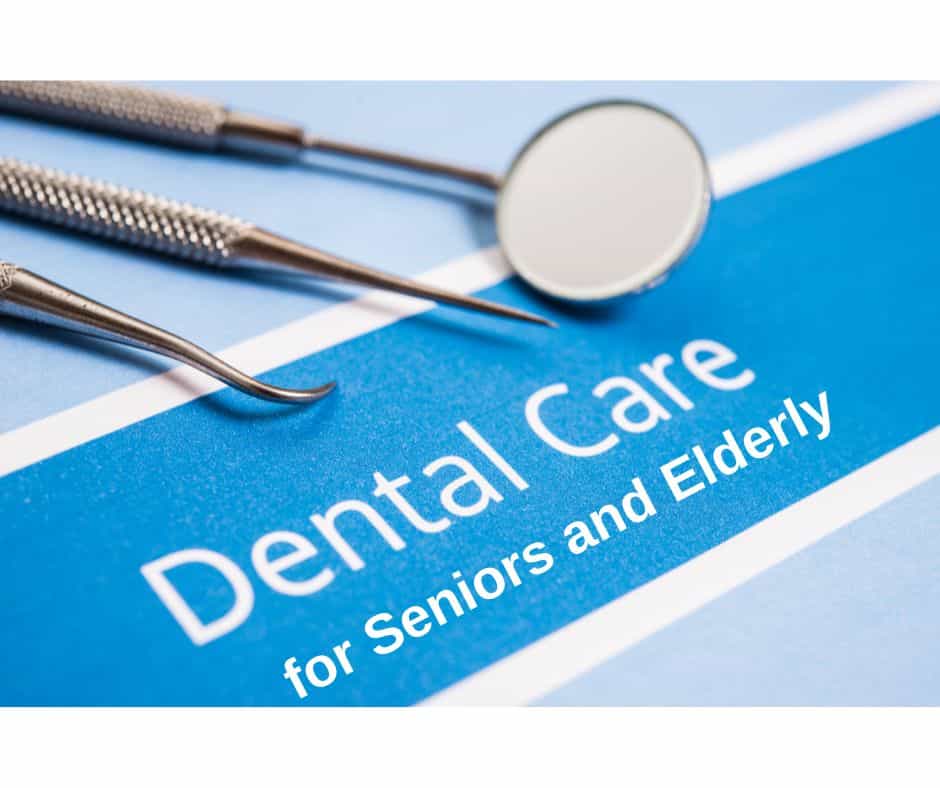
Sunshine Smiles Dentistry has dentists providing dental care to the elderly in Roswell, GA. Owing to the effects of aging, our need for dental care increases as we grow older. However, professional oral care is a relatively overlooked area of healthcare among seniors. The Gerontological Society of America recommends regular dental care for all older adults. Whether you are a senior or a caregiver seeking a trusted dentist who provides high quality dental care to the elderly, you should consider the following factors for choosing the best dentist for seniors.
Experience in Providing Senior Dental Care
Sunshine Smiles Dentistry is a dedicated family dentist with years of experience in providing dental care for the elderly will understand the patient’s age and health related limitations. Based on this understanding, the dentist will create a tailored treatment plan to meet the patient’s unique needs.
A knowledgeable and experienced dentist for older adults will:
- Recognize whether the elderly patient has a higher sensitivity to painkillers, local anesthetics, sedatives, antibiotics or other medications used in dentistry, and modify the treatment plan to suit their condition.
- Focus on the aging patient’s co-morbidities, such as type 2 diabetes, high blood pressure, heart disease, or other medical conditions, and offer sustainable dental treatment options matching to their baseline health status.
- Be mindful of the prescription and non-prescription drugs as well as herbal or home remedies that the senior patient may be using, and consult their doctor or pharmacist when necessary in order to avoid adverse drug interactions.
- Have the ability to communicate, educate and engage with the elderly patient, while taking into account their potential impairments related to vision, hearing, mobility, and cognitive skills that are often associated with aging.
Skilled in Treating Dental Problems Affecting the Elderly
Many of the dental health issues are more commonly seen in older adults. A dentist with wide-ranging experience of decades and advanced skills to treat these conditions using less invasive and more effective oral care techniques would be the ideal choice for seniors. Some of these dental health issues include:
Tooth Decay
Nearly 20% of all seniors in the US currently live with untreated dental caries and tooth decay. One of the reasons is that aging effects and medical conditions, such as arthritis may limit their muscular ability or motor skills to properly use brushing or flossing. A dentist for seniors will be able to provide targeted treatments to eliminate tooth decay and preserve the tooth structure and function as best as possible.
Gum Recession
Seniors are usually more vulnerable to receding gum tissue and tooth roots becoming exposed, which increase the tooth sensitivity to hot and cold temperatures. A skilled dentist for the elderly will be able to identify the problem before it advances, and utilize deep cleaning techniques to minimize the need for invasive treatments such as gum grafting or tooth extraction.
Burning Mouth Syndrome
Conditions such as chronic diabetic neuropathy may cause burning mouth syndrome (BMS) in the elderly. BMS is marked by a sharp tingling, burning or painful sensation in the tongue, lips and upper palate, which can last for months or even years. A skilled dentist treating older adults will be able to diagnose this condition during a routine oral exam and prescribe medications or other treatments for relief.
Halitosis (Bad Breath)
Poor oral or physical health, use of certain medications, and denture problems can sometimes cause an oral health issue called halitosis or bad breath in an elderly person. A dentist for seniors will be able to identify the underlying cause of halitosis (such as gum disease), and treat that root cause to eliminate the problem. They will also recommend good oral hygiene practices and simple home treatments, such as an antiseptic mouthwash to resolve the issue.
Xerostomia (Dry Mouth)
Some older adults may experience the symptoms of dry mouth, which could simply occur because of aging effects or as a side effect of certain drugs or cancer therapy. In this condition, the salivary glands in the mouth stop producing sufficient saliva to keep the mouth wet. A knowledgeable dentist for seniors may adjust medications in consultation with the prescribing doctor, provide prescription moisturizers or artificial saliva to lubricate the mouth, or prescribe drugs to stimulate saliva production.
Darkened Teeth
Tooth enamel begins to wear out as we age. This can cause the dark bony tissue underneath (called dentin) to get exposed, resulting in a darkened appearance of the teeth. Darkened teeth may also occur from years of use of tobacco, sodas, and caffeine. An experienced dentist for seniors may recommend teeth veneers or in-office teeth whitening as possible cosmetic dental solutions to restore brighter looking teeth.
Focus on Preventive Dental Care and Education
It is best to choose a dentist for older adults who is committed to educating them about everyday dental hygiene practices and can offer simple and easy-to-use preventive oral care solutions. Dedicated dentists know that good oral care for seniors does not always have to be expensive or complex.
- For the elderly with mobility issues or limited dexterity, the dentist can provide powered toothbrushes that involve minimum manual movement and have an easier grasp.
- For seniors with periodontitis or receding gums, the dentist may recommend less abrasive toothpastes that do not damage the dentin and do not cause tooth sensitivity.
- A dentist for seniors can help manage their dry mouth problems by recommending specialized mouth rinses and dentrifices (fluoridated toothpastes) that promote salivary flow.
- If the older adult has tightly spaced teeth, a knowledgeable dentist will recognize their limitation and recommend the use of waxed floss for easy movement between the inter-dental spaces.
- Knowledgeable dentists for seniors will sometimes prescribe special mouth rinse formulations with a higher concentration of fluoride to serve as an extra dose of protection against their higher risk of caries.
- Removable dentures should be cleaned with as much as diligence as natural teeth. A dentist for seniors will guide the patient to brush the dentures properly twice daily and follow other hygiene instructions.
- Some elderly persons with more complex ongoing problems related to gum disease or caries may be encouraged to visit the dental office up to four times a year, while other seniors should visit twice a year.
Offering More Affordable Dental Care for Seniors near Atlanta
A compassionate and dedicated dental office may be willing to offer complimentary discounts for seniors or a free add-on service. However, it is important to prioritize your health, so even if the dentist does not actively encourage discounted services, your goal should still be to choose the best dentist for older adults.
It should be noted that barring exceptions, Medicare does not cover the costs of dental services, such as routine dental exams or dental care, or dental prosthetics, such as dentures. If you are a retiree or nearing your retirement, it may be prudent to explore the option of buying private dental insurance coverage.
You may also consider enrolling in a Medicare Advantage Plan (these are Medicare-approved plans offered by private insurers, which cover various dental services and procedures). Smart financial planning ahead of time will help you stay on top of your oral health within your budget during your golden years. Humana Medicare dental accepted at Sunshine Smiles Dentistry. We also accept United Healthcare Medicare plans.
Contact Sunshine Smiles Dentistry to Protect Your Oral Health with a Dentist Trusted by Seniors
Sunshine Smiles Dentistry has built an exceptional reputation as a dentist who will go the extra mile to provide best dental care in Roswell, Georgia to patients in all age groups, including the elderly. Our dentists have earned the trust and admiration of our patients because of their tireless commitment to meeting their goals and expectations.
Sunshine Smiles Dentistry in Roswell, GA is best equipped to take care of the dental needs of older adults. To book your appointment with us, please use this online appointment link or call us at (770) 998-8116.
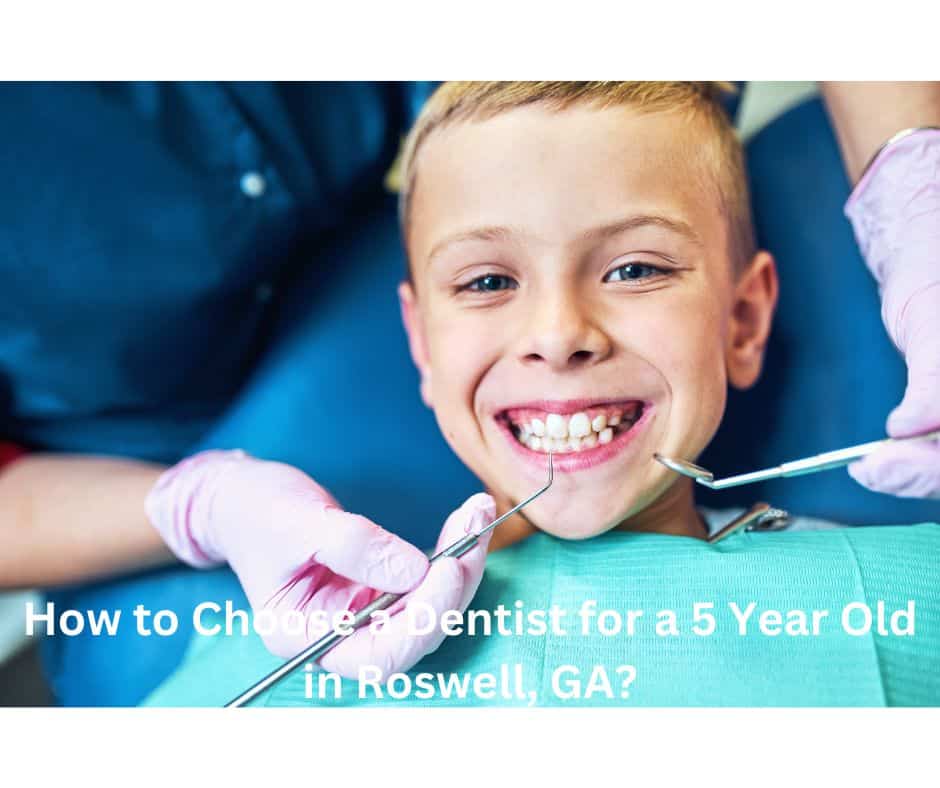
How to Choose a Dentist for a 5 Year Old in Roswell, GA
One of the most valuable gifts you can give to your five-year-old is to choose a family dentist in Roswell, GA who is qualified and equipped to provide the highest quality dental care to toddlers and young patients. Every parent wants the best in dental care for their child. How your child’s teeth, gums and jawbones develop during the early formative years will have a lifelong impact on their oral health and aesthetic facial appearance.
Professional Skills and Experience
While there are outstanding pediatric dentists focusing on oral healthcare for children, you don’t have to limit your options. The professional skills and hands-on experience of a dentist in providing preventive, curative and restorative dental care for children are the real important factors to consider.
A family dentist who has been delivering advanced dental care for kids for decades would have had the time and opportunity to perfect their craft and would be in a position to anticipate, identify and address virtually any kind of unique oral health concern your child may be facing.
A dentist with extensive practical experience of dealing with real-life oral care scenarios for toddlers, a proven track of success with thousands of patients, and having deeply trusted relationships with patients across generations might be a better choice than someone who is just launching a new career in pediatric dentistry.
The Art of Working with Toddlers
For children (and even for adults), the prospect of visiting the dentist’s office should not be scary. You need a family dentist for your 5-year old who not only has the clinical skills to treat dental problems, but also knows the art of working with little ones. A caring and compassionate dentist will go the extra mile to make your child comfortable and provide a warm and inviting environment that your child loves.
Children are highly perceptive and they can sense the vibe of a place quite precisely. If your child feels secure and reassured because the dentist and the other staff members, such as the dental hygienist can make them feel protected and cared for, they will appreciate the friendly environment. Behavior management and compassionate care is more of an art than science, and it is one of the vital skills you should look for in a dentist for your five year old.
Remember that young kids not only have anxieties and fears when they visit a dentist, they are also at an age when they may suffer from issues such as advanced tooth decay or a severe oral injury or trauma. At this time, the child’s dentist should have the capability to alleviate anxiety of the child as well as the parents, communicate reassuringly, and swiftly handle the dental emergency using their best skills. These things cannot be taught in a dental school; they are inborn and they are honed with experience.
Complete Pediatric Care under One Roof
It is best to choose a dentist for your child who offers comprehensive pediatric dentistry services under one roof. From professional dental cleanings, fillings, and preventive oral care to mouth guards and invisible braces – your dentist should be equipped to offer every type of dental care your child may need during their growing years.
Athletes as young as five years old suffer from oral injuries during the baseball and football season each year. Your toddler’s dentist should be able to educate you and your child about preventive care and, if necessary, should fabricate custom mouth guards for your child’s protection against facial trauma, such as a chipped tooth or a broken jaw.
If your 5-year old is struggling with pediatric bruxism (teeth grinding at night time), it can cause complications such as jaw muscle tenderness or tightness, worn-out teeth, headache, tooth sensitivity, and even earache. More often than not, reassuring and compassionate guidance from your dentist alone can help your child get rid of the stressful habit. In some cases, the dentist may provide a custom fitted night guard backed by regular dental evaluations.
According to Invisalign, the manufacturers of clear plastic aligners (braces), even with baby teeth, your child can begin their orthodontic treatment from six years of age. If your dentist detects a developing problem with your child’s teeth alignment, they should have the expertise and certification to provide “Invisalign First” clear aligners, which the manufacturer recommends as “Phase 1” treatment for children in age group of 6 to 10.
Convenient dental clinic location in Roswell GA
While looking for a dentist for your five year old you want to make sure that the dental clinic is at a convenient location in Roswell, GA. Sunshine Smiles Dentistry is located close to GA-400 and downtown Roswell. It is near the Roswell Riverwalk, Canton street and other attractions.
Other Factors to Consider
To choose the right family dentist for your child, you may also consider some or all of the following factors:
- Has the dentist won any recognition, awards and honors over the years, particularly in the local neighborhood and community? Consistent recognition from third party observers is an endorsement worth considering.
- Does the dentist enjoy a good reputation in the virtual world in terms of online reviews and ratings and social media comments? What do other patients have to say about their treatment experience with the dentist?
- How was your experience during the initial consultation with the dentist? Did you find the dentist and their team warm and welcoming? Did they engage with your 5 year old and manage to put them at ease?
- Does the dentist go the extra mile to educate and guide you about preventive care for your child’s oral health and hygiene? Do they communicate clearly, answer all your questions in detail, and help you make informed choices for your child?
- What was your experience when you made your first phone call to the family dentist’s office? Rather than coming across as ‘salesy’ and pushy, a great dental office will be approachable, helpful and friendly even when they don’t know you.
Choose Sunshine Smiles Dentistry as your family dentist
Sunshine Smiles Dentistry is proud of its patient-friendly culture where children and adults alike feel completely comfortable and reassured that they are in safe hands. Dr. Suvidha Sachdeva and her team will utilize proven and effective oral care solutions to meet your child’s unique dental health needs and pave the way for their excellent development of teeth, gums, and jawbone.
To schedule an appointment for your five year old at our Roswell, GA dental office, use this online appointment link or call us at (770) 998-8116.
Driving from Alpharetta GA to Sunshine Smiles Dentistry:
Drive on GA-9 S/S Main St
Turn Left on Wills Rd
Turn right on Old Roswell Rd
At the traffic circle continue straight
Turn right onto Westside Pkwy
Continue onto Old Roswell Rd
Continue onto Grimes Bridge Rd
Turn left on Market Place
Sunshine Smiles Dentistry will be on your Left
Driving from Atlanta GA to Sunshine Smiles Dentistry:
Get on I-75N/I-85N
Turn right onto Holcomb Bridge Rd
Turn left on Market Place
Use the left lanes to take exit 251B for I-85 N toward GA-400/Greenville
Continue onto I-85 N
Use the right 2 lanes to take exit 87 for GA-400 N toward Buckhead/Cumming
Continue onto GA-400 N
Use the right 2 lanes to take exit 7B to merge onto GA-140 W/Holcomb Bridge Rd toward Roswell
Merge onto GA-140 W/Holcomb Bridge Rd
Turn left onto Market Pl
Sunshine Smiles Dentistry will be on your right

How can your dentist help with Snoring? Sleep is a vital component of our overall health and well-being, allowing our bodies to rejuvenate and recharge. However, for many individuals, the persistent sound of snoring disrupts the tranquility of the night, affecting both the snoring person and those around them.
Snoring is more than just an annoyance; it can signify underlying issues that impact sleep quality and overall health. In this blog, let us look into the causes and consequences of snoring, explore innovative solutions known as anti-snoring appliances, and offer guidance on seeking professional assistance for a better night’s sleep.
The Science Behind Snoring
Snoring is a common occurrence caused by the vibration of tissues in the throat due to a narrowed airway during sleep. Factors such as obesity, nasal congestion, sleep position, and anatomical variations in the throat can contribute to this phenomenon. While snoring itself may seem harmless, it can disrupt sleep patterns, leading to daytime fatigue, irritability, and reduced cognitive function.
The Connection to Sleep Apnea
Chronic snoring may be indicative of a more serious condition known as obstructive sleep apnea (OSA). OSA occurs when the airway becomes completely blocked during sleep, resulting in breathing interruptions. This prompts the brain to awaken the individual, often without their awareness, to restore normal breathing.
This cycle of disrupted sleep can lead to excessive daytime sleepiness, difficulties in concentration, and an increased risk of accidents. Additionally, untreated OSA is associated with various health concerns, including hypertension, heart disease, diabetes, and stroke.
Anti-Snoring Appliances: A Ray of Hope
The field of dental medicine has introduced a range of innovative solutions to combat snoring and its related problems. One such solution is the use of anti-snoring appliances, carefully designed to reposition the jaw and tongue for improved airflow during sleep. By advancing the lower jaw and stabilizing the soft palate, these appliances prevent the collapse of throat tissues, effectively reducing or eliminating snoring sounds and breathing disruptions.
Customization for Maximum Effectiveness
The effectiveness of anti-snoring appliances lies in their individualized approach. Each person’s anatomical structure is unique, and a personalized solution is essential for optimal results. These appliances are tailored to fit the patient’s mouth, ensuring comfort and maximum efficacy. The customized fit allows individuals to experience the benefits of uninterrupted sleep and improved overall health.
Understanding the Mechanics
Anti-snoring appliances operate based on the concept of mandibular advancement. By gently moving the lower jaw forward, these appliances keep the airway open and prevent the vibrations that cause snoring. This approach not only addresses snoring but can also alleviate the effects of sleep apnea, enhancing both sleep quality and overall well-being.
The Holistic Impact
The significance of addressing snoring and sleep apnea goes beyond sound sleep. A well-rested night contributes to better cognitive function, mood stability, and overall health. By tackling these issues, individuals can experience a higher quality of life and reduced risks of chronic diseases associated with sleep disturbances.
Seeking Professional Assistance
If you or a loved one is experiencing chronic snoring or suspect sleep apnea, seeking professional guidance is crucial. A qualified dentist with experience in addressing snoring concerns can assess your situation, recommend appropriate interventions, and provide solutions tailored to your needs. By resolving these concerns, you’re not only enhancing your sleep but investing in your long-term health.
Types of Anti-Snoring Appliances: Choosing the Right Solution for a Silent Night’s Sleep
Advancements in dental technology have led to a variety of anti-snoring appliances designed to address this issue and provide relief. Here is an overview of a few common anti-snoring appliances to help you make an informed decision for a peaceful sleep.
Mandibular Advancement Devices (MADs)
Mandibular Advancement Devices (MADs) are among the most common and effective anti-snoring solutions. These devices resemble sports mouthguards and are worn in the mouth during sleep. MADs work by repositioning the lower jaw slightly forward, which prevents the collapse of tissues in the throat that cause snoring. This advancement keeps the airway open and unobstructed, resulting in reduced or eliminated snoring sounds.
Tongue Retaining Devices
Tongue Retaining Devices (TRDs) are designed to prevent snoring by holding the tongue in a forward position during sleep. These devices are particularly beneficial for individuals whose snoring is primarily caused by the tongue obstructing the airway. TRDs create additional space in the throat, ensuring that the airway remains clear and allowing for smooth airflow.
Continuous Positive Airway Pressure (CPAP) Devices
While CPAP devices are more commonly associated with treating sleep apnea, they can also be effective in managing snoring. CPAP machines deliver a continuous stream of pressurized air through a mask worn over the nose and/or mouth. The positive airway pressure prevents the collapse of throat tissues, ensuring unobstructed breathing and reducing snoring. Although effective, CPAP devices may be considered more intrusive by some users.
Positional Therapy Devices
Positional Therapy Devices are designed to discourage sleeping in positions that contribute to snoring. These devices may take the form of specialized pillows or wearable devices that emit vibrations when the user rolls onto their back. By encouraging side-sleeping, these devices can significantly reduce snoring episodes.
Palatal Implants
Palatal implants are a surgical intervention for snoring that involves the insertion of small rods into the soft palate. Over time, these implants stimulate the growth of scar tissue, which tightens and stiffens the palate. This increased rigidity reduces the likelihood of palate vibration and snoring. Palatal implants are typically considered for individuals with mild to moderate snoring.
Considerations for Choosing the Right Anti-Snoring Appliance
When recommending an anti-snoring appliance, a dedicated dentist will take several factors into account:
Cause of Snoring: Understanding the root cause of snoring is essential in choosing the appropriate appliance. For instance, if tongue obstruction is the primary issue, a tongue retaining device may be more effective.
Comfort: Comfort is important, as the appliance will be worn during sleep. It is best to choose a device that fits well and does not cause discomfort or pain.
Effectiveness: Research the effectiveness of different devices. Consultation with a knowledgeable dental professional can provide valuable insights.
Severity of Snoring: The severity of snoring can vary. Mild snoring may respond well to positional therapy, while more severe cases may require advanced appliances.
Medical Conditions: If you have underlying medical conditions such as sleep apnea, consulting a skilled and experienced dentist is vital to ensure that the chosen device is appropriate for your needs.
How can local Roswell dentist at Sunshine Smiles Dentistry help with Snoring?
The quest for a peaceful night’s sleep is a universal pursuit, with snoring often standing in the way of restful slumber. When it comes to selecting the right provider for anti-snoring devices, Sunshine Smiles Dentistry stands out as a trusted and expert choice. Here are the unique advantages of choosing Sunshine Smiles Dentistry in Roswell, GA for your snoring relief needs.
Expertise and Experience: At Sunshine Smiles Dentistry, our dentists have a wealth of experience in dental care and oral health. The dentists at Sunshine Smiles Dentistry have a deep understanding of the intricacies of snoring and sleep-related concerns. This specialized knowledge allows her to offer tailored solutions that address the root causes of snoring, ensuring effective results.
Personalized Approach: At Sunshine Smiles Dentistry, we recognize that each individual’s needs are unique. Our approach is centered on personalization, as we believe that a one-size-fits-all solution may not yield optimal results. When it comes to anti-snoring devices, we take the time to assess your specific situation, taking into account factors such as the cause of snoring, anatomical considerations, and your comfort preferences.
Cutting-Edge Technology: Our commitment to staying at the forefront of dental technology sets us apart. We leverage the latest advancements in the field to provide you with innovative anti-snoring devices that are both effective and comfortable. Our state-of-the-art solutions are designed to align with your needs, ensuring a positive experience and sustainable results.
Holistic Approach: Our dentists take a holistic approach to oral health and well-being. They understand that addressing snoring goes beyond eliminating the sound; it involves enhancing sleep quality and overall health. Our anti-snoring solutions are crafted with the bigger picture in mind, promoting better sleep patterns, improved cognitive function, and a reduced risk of health complications.
Who choose the dental team at Sunshine Smiles Dentistry?
Comprehensive Care: Choosing Sunshine Smiles Dentistry means gaining access to a comprehensive range of dental services near Atlanta GA. Our expertise extends beyond anti-snoring devices, allowing us to address multiple oral health concerns that may contribute to sleep-related issues. Whether you require dental check-ups, orthodontic care, or other dental solutions, we provide a thoroughly integrated approach.
Patient-Centric Focus: At the core of Sunshine Smiles Dentistry’s values is our commitment to patient satisfaction. We prioritize your comfort, well-being, and unique needs throughout your journey with us. Our compassionate and dedicated team, led by top Roswell dentists, is here to guide you through the snoring treatment process, ensuring that you’re informed, comfortable, and confident in your decision.
Pave the Way for Quieter Nights and Sound Sleep with Sunshine Smiles Dentistry
As you navigate the journey to improved sleep and overall well-being, remember that professional assistance is just a step away. A skilled dentist can guide you toward most effective solutions that promote better sleep quality and a healthier life. We provide dental care to patients looking for a dentista cerca de mi. The dentists at Sunshine Smiles Dentistry specialize in innovative solutions for these concerns. Book a consultation to explore personalized approaches to better sleep and sustainable well-being. Schedule your appointment online or call (770) 998-8116 today.
Driving directions to Sunshine Smiles Dentistry
Driving from Alpharetta GA to Sunshine Smiles Dentistry:
Drive on GA-9 S/S Main St
Turn Left on Wills Rd
Turn right on Old Roswell Rd
At the traffic circle continue straight
Turn right onto Westside Pkwy
Continue onto Old Roswell Rd
Continue onto Grimes Bridge Rd
Turn left on Market Place
Sunshine Smiles Dentistry will be on your Left
Driving from Milton GA to Sunshine Smiles Dentistry:
Drive on Crabapple Rd
Turn Left onto Houze Rd
Take a Left turn onto Holcomb Bridge Rd
Turn Right onto Grimes Bridge Rd
Turn left on Market Place
Sunshine Smiles Dentistry will be on your left
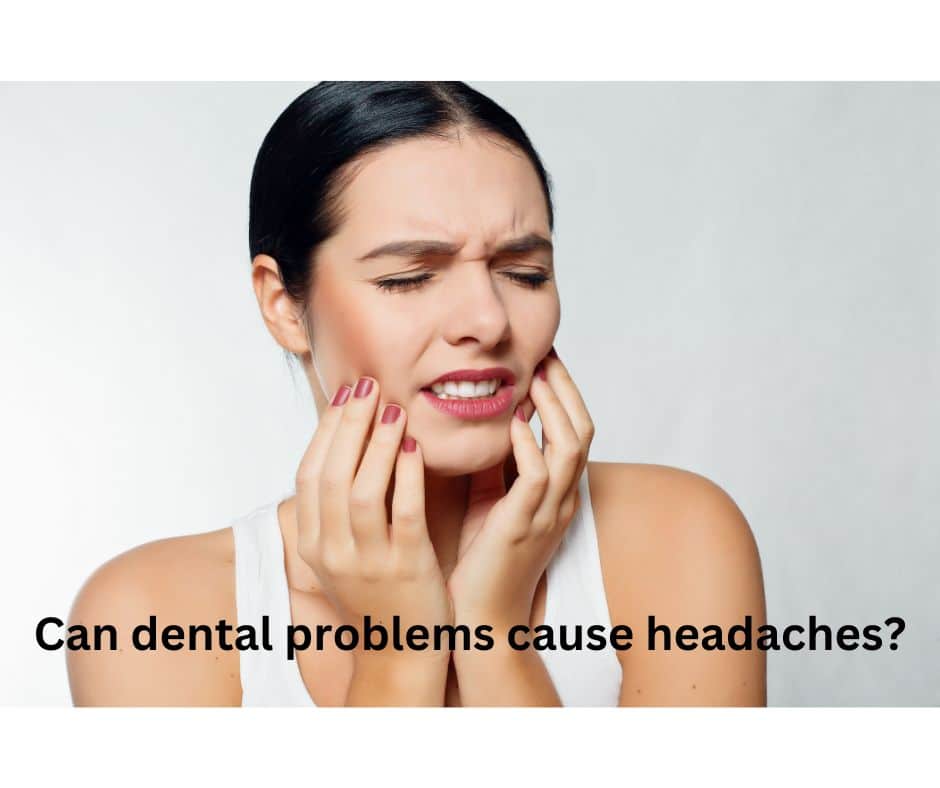
Dental problems can often cause headaches! Headaches are a common ailment that can significantly impact one’s quality of life. While there are various causes for headaches, dental issues can sometimes be a hidden contributor.
Dental Restorations can offer solutions for Headaches
Bite Correction
Dental restorations, such as crowns, bridges, and veneers, can correct misaligned bites and restore proper alignment. This balanced bite reduces muscle strain and tension, alleviating headache symptoms. At Sunshine Smiles Dentistry we provide several general and cosmetic dentistry for patients near Roswell, GA
Even Distribution of Forces
Restorations help ensure that biting and chewing forces are evenly distributed across the dental arch. This balanced distribution minimizes strain on muscles and joints, reducing the risk of tension-related headaches.
Protection and Support
Restorations provide protection and support to damaged or worn teeth. By preserving the integrity of the teeth’s structure, they prevent further wear and tear that could contribute to headaches.
Orthodontic Restorations
For cases of misalignment causing headaches, orthodontic treatments at Sunshine Smiles Dentistry like braces or clear aligners can gradually shift teeth into their proper positions, promoting a harmonious bite and relieving muscle tension. We serve Spanish speaking patients looking for orthodontic treatments
Benefits of Dental Restorations from our Atlanta Dentists
Targeted Relief: Dental restorations specifically address the dental issues causing headaches, offering targeted relief and improved quality of life.
Improved Oral Function: Restorations not only alleviate headaches but also restore proper oral function, allowing for comfortable chewing, speaking, and overall oral health.
Enhanced Aesthetics: Many dental solutions also enhance the appearance of the smile, providing an added boost of confidence and self-esteem.
Long-Term Results: Dental restorations offer long-lasting results, providing ongoing relief from headaches and discomfort.
Consult with one of top dental clinics near Roswell, GA today!
Sunshine Smiles Dentistry is an award winning and one of the top dental clinics in Roswell, Georgia. Setup a consultation with one of our dentists and see if dental solutions can help with your headaches.
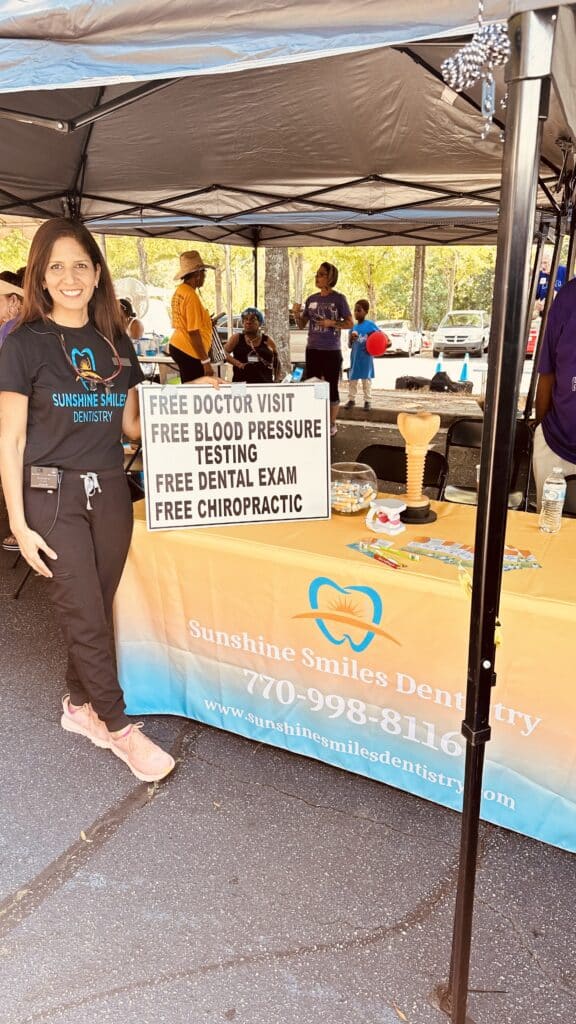
On September 21, Sunshine Smiles Dentistry made a significant impact at the Roswell Day of Hope, a community event dedicated to supporting local families in need. This year, our team of compassionate dental professionals offered free dental exams, contributing their time and expertise to promote oral health and wellbeing within the community.

The Roswell Day of Hope is an annual event that connects families with essential resources, providing services such as food assistance, health screenings, and educational resources. Organized by local nonprofits and community leaders, the event aims to uplift those facing challenges and ensure that everyone has access to necessary care. In this spirit, Sunshine Smiles Dentistry stepped in to address an often-overlooked aspect of health: oral hygiene. This year’s event was held at the Roswell City Hall.

Dr. Suvidha Sachdeva, the lead dentist at Sunshine Smiles, expressed her enthusiasm for participating in the event. “At Sunshine Smiles, we believe that dental health is a vital part of overall wellbeing. Many individuals and families in our community may not have access to regular dental care, and we’re here to change that, even if just for a day,” she stated. The clinic’s team of dentists, hygienists, and volunteers worked tirelessly, providing free dental exams to attendees, many of whom were experiencing dental issues but lacked the resources to seek treatment.
Throughout the day, families lined up to receive their free dental assessments. The atmosphere was filled with laughter and hope as children and adults alike received essential care and guidance on maintaining their oral health. Each examination included not only a thorough check-up but also personalized advice on proper dental hygiene practices, reinforcing the importance of regular dental visits.
Providing dental care to the local community
Sunshine Smiles Dentistry also took the opportunity to distribute oral hygiene kits, which included toothbrushes, toothpaste, and informational pamphlets about dental care. These kits were designed to equip families with the tools they need to maintain good oral hygiene at home, further emphasizing the clinic’s commitment to long-term community health.
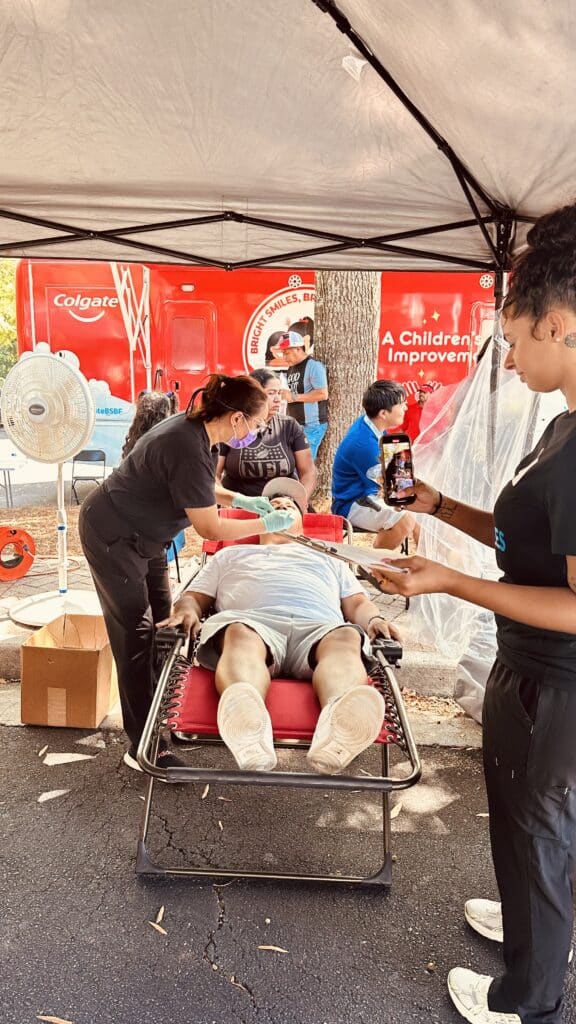
The event proved to be a meaningful experience for both the dental team and the attendees. Many participants expressed gratitude for the care they received. “I haven’t seen a dentist in years,” one attendee shared. “This event made it possible for me to get the help I desperately needed. I’m so thankful for Sunshine Smiles Dentistry.”
In addition to providing immediate care, Sunshine Smiles Dentistry aims to build lasting relationships within the community. The clinic plans to continue its outreach efforts by organizing more events, educational workshops, and partnerships with local organizations to ensure that dental health remains a priority for Roswell families.
The Roswell Day of Hope was not just a day of service for Sunshine Smiles Dentistry but also a reminder of the profound impact that community involvement can have. By offering free dental exams and fostering a supportive environment, the clinic is helping to ensure that everyone in Roswell has the opportunity to achieve a healthy smile.
As the event came to a close, it was clear that Sunshine Smiles Dentistry had not only provided necessary dental care but had also spread hope and positivity throughout the community. With their commitment to service, they are setting an inspiring example of how local businesses can give back, making a difference one smile at a time.
Contact Sunshine Smiles Dentistry when looking for dental care in Roswell Georgia
Sunshine Smiles Dentistry welcomes patients looking for a dentist in Roswell, Georgia. We welcome Spanish-speaking patients looking for a dentist to our practice. Schedule Online Now or call us at +1 (770) 998-8116 to schedule your dental appointment at our clinic.
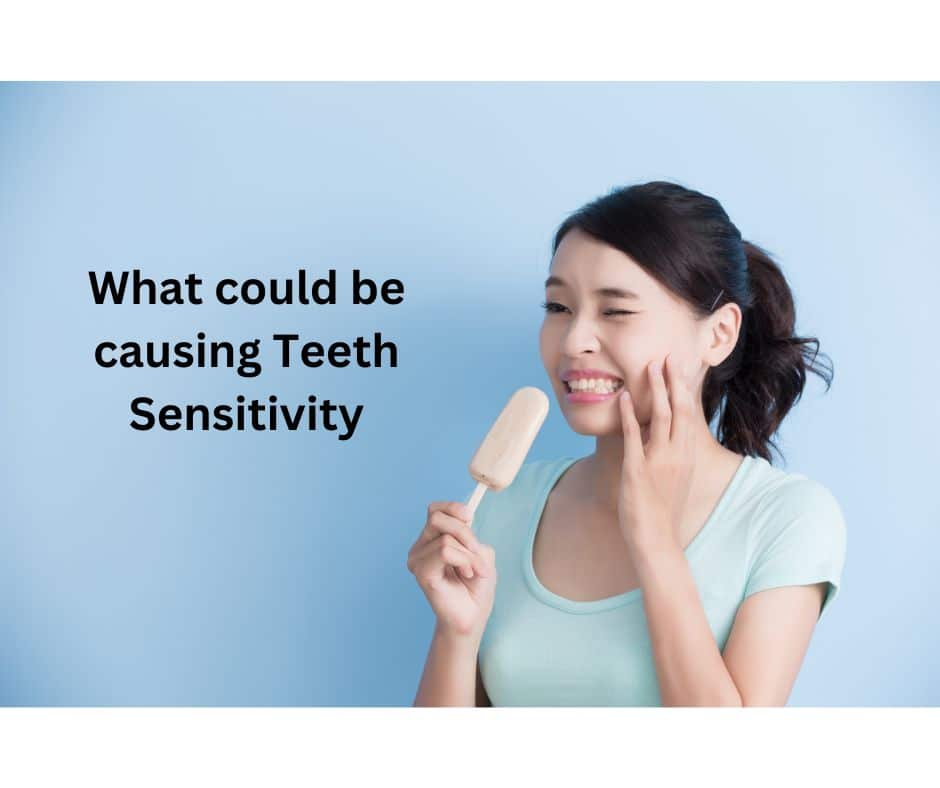
Tooth sensitivity is a common dental issue that can cause discomfort when consuming hot, cold, sweet, or acidic foods and beverages. In some cases, even breathing in cold air or brushing your teeth can trigger discomfort or pain. If you are experiencing tooth sensitivity, you should be aware of the potential causes, as they may range from mild, easily treated issues to more serious dental conditions. Depending on the severity of your condition, you may require a visit to an experienced dentist near you in Roswell, GA.
Top 10 Causes of Tooth Sensitivity
Here are the top 10 causes of sensitive teeth:
Tooth Enamel Erosion
Enamel is the hard outer layer of your teeth, and its primary function is to protect the softer, sensitive layers beneath, including dentin and pulp. Tooth enamel erosion is a key factor contributing to tooth sensitivity, as it exposes the underlying dentin and nerve endings, leading to discomfort when you consume hot, cold, sweet, or acidic foods and beverages.
What causes Enamel Erosion?
- Acidic Foods and Beverages: Consuming foods like citrus fruits, soda, and wine frequently can weaken and erode enamel over time.
- Brushing Too Hard: Using too much force or a hard-bristled toothbrush can wear down enamel.
- Bruxism (Teeth Grinding): Grinding your teeth, often during sleep, can gradually wear away enamel, leading to sensitivity.
- Acid Reflux: Acid from the stomach can reach your mouth and erode tooth enamel if you suffer from gastroesophageal reflux disease (GERD).
What are the solutions for enamel erosion?
To prevent further enamel erosion, reduce consumption of acidic foods, use a soft-bristled toothbrush, and wear a mouthguard if you grind your teeth. Over-the-counter toothpaste specifically designed for sensitive teeth can also help provide relief.
Gum Recession
Gum recession occurs when the gum tissue surrounding your teeth pulls back, exposing the roots of your teeth. Unlike enamel, the roots are not covered by a protective layer, making them much more sensitive to external stimuli.
What can cause Gum Recession?
- Periodontal Disease: Gum disease can lead to inflammation and loss of gum tissue, which exposes the tooth roots.
- Aggressive Brushing: Brushing too hard can not only wear down enamel but also cause the gums to recede.
- Aging: As we age, gums naturally recede, which may lead to increased sensitivity.
How to deal with Gum recession?
Good oral hygiene is essential to prevent gum disease and gum recession. Use a soft-bristled toothbrush and be gentle when brushing. In advanced cases of gum recession, your dentist may recommend a gum graft to cover the exposed root surfaces.
Tooth Decay (Cavities)
Tooth decay occurs when plaque—a sticky film of bacteria—builds up on your teeth. Bacteria in plaque produce acids that erode enamel, eventually creating small holes (cavities) in the teeth. These cavities expose the dentin layer, making your teeth more sensitive to hot, cold, and sweet stimuli. Read the tips on how to prevent plaque.
What are some causes of Tooth Decay?
- Poor Oral Hygiene: Not brushing and flossing regularly allows plaque to build up, leading to cavities.
- Sugary and Starchy Foods: Foods high in sugar and starch fuel the bacteria that produce acids, which can damage your enamel.
- Dry Mouth: Saliva helps wash away food particles and neutralize acids. A lack of saliva can increase the risk of tooth decay.
How to deal with Tooth decay?
Preventing cavities requires regular brushing, flossing, and professional dental cleanings. If you already have cavities, your dentist can remove the decay and fill the cavity, reducing sensitivity.
Cracked or Chipped Teeth
A cracked or chipped tooth can expose the dentin and pulp layers, which are highly sensitive to temperature changes, pressure, and certain foods. Cracks may also allow bacteria to enter the tooth, potentially leading to infection and further sensitivity.
What can cause teeth to crack or chip?
- Injury: A direct blow to the mouth, such as during sports or an accident, can crack a tooth.
- Chewing Hard Foods: Chewing on hard foods, ice, or non-food items like pens can lead to cracks or chips.
- Teeth Grinding: Over time, grinding your teeth can cause cracks in the enamel.
How do deal with cracked or chipped teeth?
Minor cracks can often be repaired with bonding material or a dental filling. For more severe cracks, your dentist may recommend a crown or, in some cases, a root canal to save the tooth. Sunshine Smiles Dentistry sees patients for dental emergencies like cracked or chipped teeth.
Recent Dental Procedures can cause teeth sensitivity
Some dental procedures, such as fillings, crowns, or teeth whitening, can temporarily cause tooth sensitivity. These procedures may irritate the nerves inside your teeth, leading to short-term discomfort.
Some common dental Procedures That Cause Sensitivity
- Fillings: After a filling, especially a deep one, the tooth may feel sensitive as it adjusts to the new material.
- Teeth Whitening: Professional teeth whitening treatments can strip away some of the protective enamel layer, making teeth more sensitive to cold or hot temperatures.
- Dental Cleanings: A thorough cleaning, especially if there was significant plaque buildup, may leave your teeth feeling sensitive.
Solution
In most cases, sensitivity caused by dental procedures is temporary and resolves within a few days to a couple of weeks. Our dentists near Roswell, Georgia may recommend toothpaste for sensitive teeth or a fluoride treatment to alleviate discomfort.
Exposed Tooth Roots
When the gum tissue that normally covers the roots of your teeth recedes or is damaged, it can leave the sensitive root area exposed. Unlike the enamel-covered crown of the tooth, the roots are much more sensitive to temperature changes and acidic foods.
What causes Exposed Tooth Roots?
- Gum Disease: Periodontitis, an advanced form of gum disease, can erode gum tissue and expose the roots of your teeth.
- Over-brushing: Brushing too vigorously can wear down gums, exposing the roots over time.
- Orthodontic Treatment: Certain orthodontic procedures may lead to gum recession and exposed roots.
Solution for exposed tooth roots
Treating exposed tooth roots typically involves gum grafting procedures or applying a protective covering to reduce sensitivity. Practicing gentle oral hygiene can prevent the condition from worsening.
Sinus Infections can cause teeth to be sensitive
Sinus infections can cause pressure in the upper jaw, leading to tooth sensitivity or pain. This type of sensitivity usually affects multiple upper teeth rather than just one.
Causes of Sinus-Related Tooth Sensitivity
- Congestion: When your sinuses are congested due to a cold, allergy, or infection, the pressure can radiate to the teeth, causing discomfort.
- Inflammation: Inflammation of the sinuses, known as sinusitis, can press against the roots of the upper molars.
Solution for sinus related tooth sensitivity
If a sinus infection is causing your tooth sensitivity, addressing the sinus issue with medication or other treatments will likely resolve the tooth discomfort. Over-the-counter decongestants or antihistamines can help relieve sinus pressure.
Teeth Sensitivity due to Tooth Whitening Products
Over-the-counter or professional teeth whitening products contain bleaching agents like hydrogen peroxide or carbamide peroxide, which can sometimes penetrate the enamel and reach the dentin. This exposure irritates the nerve endings in the teeth, leading to heightened sensitivity.
Causes of Sensitivity from Whitening
- Frequent Use: Regular use of whitening strips, gels, or toothpaste can weaken the enamel, making your teeth more prone to sensitivity.
- Professional Whitening Treatments: Some in-office whitening treatments, while effective, can temporarily irritate the teeth and cause sensitivity for a few days after the procedure.
Some solutions for whitening related whitening
To reduce sensitivity from whitening, space out treatments, use a desensitizing toothpaste, or consult with our dentist about more gentle whitening options. If the sensitivity persists, switching to a lower concentration of the whitening agent may help.
Dental Work Trauma
Dental procedures like fillings, crowns, root canals, or dental implants can sometimes result in tooth sensitivity due to the stress or trauma the tooth undergoes during treatment. After dental work, the tooth may feel sensitive to pressure, hot or cold temperatures, or even normal biting.
Causes of Trauma-Induced Sensitivity
- Deep Fillings: When decay is removed and the filling is placed close to the nerve, the tooth may become sensitive as the nerve heals.
- Crowns and Root Canals: These procedures involve significant work on the tooth, and it’s common to experience sensitivity as the tooth heals from the treatment.
- Post-Orthodontic Treatment: Sensitivity can occur after braces are removed or when dental adjustments are made, putting pressure on the teeth.
Solution for Trauma-Induced Sensitivity
Post-procedural sensitivity usually fades over time. Desensitizing toothpaste, fluoride treatments, or, in severe cases, adjusting the dental work can help alleviate discomfort.
Sensitive teeth due to Nerve Damage or Pulpitis
Pulpitis is the inflammation of the dental pulp, the soft tissue inside the tooth that contains nerves and blood vessels. When the pulp becomes irritated or inflamed, it can lead to significant tooth sensitivity or pain, particularly in response to hot, cold, or sweet stimuli.
Causes of Pulpitis or Nerve Damage
- Untreated Cavities: If cavities are left untreated, bacteria can penetrate the enamel and reach the pulp, causing inflammation.
- Trauma to the Tooth: A direct injury to the tooth, such as from a fall or sports accident, can damage the pulp, leading to sensitivity.
- Extensive Dental Work: Repeated dental procedures on the same tooth can stress or damage the nerve, causing pulpitis.
Some solutions for pulpitis or nerve damage
Mild pulpitis may be reversible with treatment, such as a filling or crown to protect the pulp. In more severe cases, such as when the pulp is irreversibly damaged, a root canal may be necessary to remove the damaged pulp and alleviate sensitivity.
When to See a Dentist for Sensitive Teeth?
While some causes of tooth sensitivity can be addressed with improved oral care at home, persistent or severe sensitivity may require professional treatment. If your sensitivity is accompanied by swelling, pain, or bleeding, consult your dentist in Roswell, GA as soon as possible. They can diagnose the underlying issue and recommend appropriate treatments, such as fluoride application, bonding, or gum treatment.
How Can a Dentist Treat Tooth Sensitivity?
Dentists offer several effective treatments for tooth sensitivity, depending on its cause. Here’s a detailed look at how dental professionals can help manage and treat sensitive teeth:
Fluoride Treatment
How Does Fluoride Treatment Work
Fluoride is a mineral that strengthens tooth enamel and reduces sensitivity. In cases where enamel erosion or early decay is causing sensitivity, dentists may apply a fluoride varnish or gel to the sensitive areas. This treatment helps restore the enamel’s integrity and can reduce the pain associated with exposed dentin.
What are the Types of Fluoride Treatments:
- Topical Fluoride Gel: Applied directly to sensitive areas in the office.
- Fluoride Varnish: A thicker, more concentrated application that adheres to teeth for longer-lasting relief.
Benefits of Fluoride treatment
Fluoride helps remineralize enamel, creating a protective barrier and reducing discomfort from temperature changes or acidic foods.
Desensitizing Agents
How do Desensitizing Agents Work
Dentists often recommend toothpaste or in-office applications that contain desensitizing agents, such as potassium nitrate or stannous fluoride. These agents help block pain signals from reaching the nerves in your teeth by filling in the tubules in the dentin.
Common Products: containing desensitizing agents?
- Desensitizing Toothpaste: Regular use over a few weeks can reduce sensitivity.
- In-Office Desensitizing Gel: A concentrated gel applied to sensitive areas to provide immediate relief.
Benefits of desensitizing agents?
These treatments provide rapid relief and can be used as a long-term solution to reduce sensitivity caused by exposed dentin.
Dental Bonding or Sealants
How does dental bonding or sealants work?
For teeth with worn enamel, receding gums, or minor cracks, dentists may apply dental bonding or sealants. A bonding material, usually a tooth-colored resin, is painted onto the sensitive surfaces and hardened using a special light. This seals the dentin and prevents stimuli from reaching the nerve.
What are some issues treated by bonding or sealants?
- Exposed Dentin: Bonding covers the exposed dentin that leads to sensitivity.
- Cracks or Chips: The resin helps restore the tooth structure and block sensitivity.
Benefits of dental bonding or sealants
Bonding or sealants are effective in closing gaps or cracks in the enamel, protecting the dentin, and providing long-term relief.
Gum Grafts for Receding Gums
How does Gum Grafting Works
If gum recession is causing your sensitivity by exposing the roots of your teeth, your dentist may recommend a gum graft. This surgical procedure involves taking tissue, usually from the roof of your mouth, and attaching it to the area where the gums have receded. The new gum tissue protects the roots from exposure.
Gum graft Procedure:
- Tissue Graft: Tissue is harvested from your mouth or a donor source.
- Grafting: The tissue is placed over exposed roots to cover and protect them.
Benefits of gum grafting
Gum grafting not only reduces sensitivity but also prevents further gum recession, which can protect against future dental issues.
Root Canal Therapy (RCT)
How does Root Canal Therapy Work?
In severe cases where tooth sensitivity is caused by irreversible damage to the tooth’s pulp, a root canal may be necessary. During this procedure, the dentist removes the damaged or infected pulp from the inside of the tooth, cleans the root canals, and seals them. A crown may be placed over the tooth to provide additional protection. The dentists at Sunshine Smiles Dentistry perform root canal therapy near Roswell, Georgia
Common Causes that need root canal therapy
- Pulpitis: Inflammation of the pulp due to deep decay or trauma.
- Infection: When bacteria reach the pulp, causing pain and sensitivity.
Benefits of root canal therapy
A root canal eliminates the source of sensitivity by removing the damaged pulp, and the procedure often saves the tooth from extraction.
Crowns, Inlays, or Onlays
How It Works
If your sensitivity is due to decay, cracks, or fractures, a dentist may recommend covering the tooth with a crown, inlay, or onlay. These restorations protect the tooth from further damage and prevent external stimuli from reaching the sensitive nerves inside.
- Dental Crowns: A full-coverage cap placed over the entire tooth.
- Inlays/Onlays: Partial coverings that restore decayed or damaged areas of a tooth.
Benefits
Restorations like crowns and inlays not only restore the structure of the tooth but also act as a protective barrier, significantly reducing sensitivity.
Nightguards for Bruxism
How do Nightguards Work?
If teeth grinding (bruxism) is causing enamel erosion or cracks, which lead to sensitivity, your dentist may recommend a custom-fitted nightguard. This device is worn while sleeping to prevent grinding and protect the teeth from further damage.
Causes Addressed:
- Teeth Grinding: Bruxism often leads to cracks and enamel wear.
- Jaw Clenching: Prevents excessive force on the teeth during sleep.
Benefits
Wearing a nightguard can stop the progression of damage caused by bruxism, helping to prevent further sensitivity and protect your teeth.
Treatment of Underlying Conditions causing Sensitivity
How It Works
In cases where tooth sensitivity is due to systemic health issues, such as acid reflux or sinus infections, addressing these underlying conditions is vital. Dentists may refer you to a medical specialist or recommend lifestyle changes to reduce acid exposure or treat sinus issues that are contributing to sensitivity.
Common Issues:
- Acid Reflux: Dental enamel can erode due to stomach acid.
- Sinus Infections: Pressure on the upper jaw can cause sensitivity.
Benefits
Treating the root cause of sensitivity, whether it’s gastrointestinal issues or sinus problems, can help alleviate dental discomfort and protect your teeth from further harm.
Can Damaged or Eroded Tooth Enamel be Repaired or Restored?
Causes of Tooth Enamel Erosion
Tooth enamel is the hardest substance in the human body, yet it is not capable of regenerating enamel once lost. Erosion can occur due to various factors, including:
- Dietary Choices: Frequent consumption of acidic foods and beverages, such as citrus fruits, sodas, and vinegar, can weaken enamel.
- Acid Reflux: Stomach acids can erode enamel when they come into contact with teeth.
- Poor Oral Hygiene: Insufficient brushing and flossing can lead to plaque buildup, which produces acids that contribute to enamel erosion.
- Brushing Technique: Using a hard-bristled toothbrush or brushing too aggressively can wear down enamel.
Repairing Eroded Tooth Enamel
While enamel cannot be fully restored to its original state, several dental treatments can help repair some of the damage or mitigate the effects of erosion:
- Fluoride Treatments: Professional fluoride applications can strengthen remaining enamel and make teeth more resistant to further erosion. Fluoride helps remineralize enamel, enhancing its durability and reducing sensitivity.
- Dental Sealants: Sealants are protective coatings applied to the chewing surfaces of teeth. They can shield vulnerable areas from acid attack and further erosion.
- Bonding: In cases of significant enamel loss, dental bonding can be used to apply a tooth-colored resin to the affected teeth. This can help improve appearance and protect underlying dentin.
- Veneers: For more extensive damage, porcelain veneers can be bonded to the front surfaces of teeth, providing both aesthetic enhancement and additional protection.
Home Care Strategies for enamel loss
In addition to professional treatments, individuals can take proactive steps to minimize further enamel loss and manage sensitivity:
- Use Desensitizing Toothpaste: These toothpastes contain compounds that block pain signals from reaching the nerves in the teeth, providing temporary relief.
- Adjust Dietary Habits: Reducing the intake of acidic foods and drinks, and using a straw for beverages can help minimize contact with teeth.
- Practice Good Oral Hygiene: Regular brushing with a soft-bristled toothbrush and fluoride toothpaste, along with daily flossing, can help maintain enamel health.
- Stay Hydrated: Drinking water can help neutralize acids and rinse away food particles, reducing the risk of erosion.
Frequently Asked Questions on Tooth Sensitivity
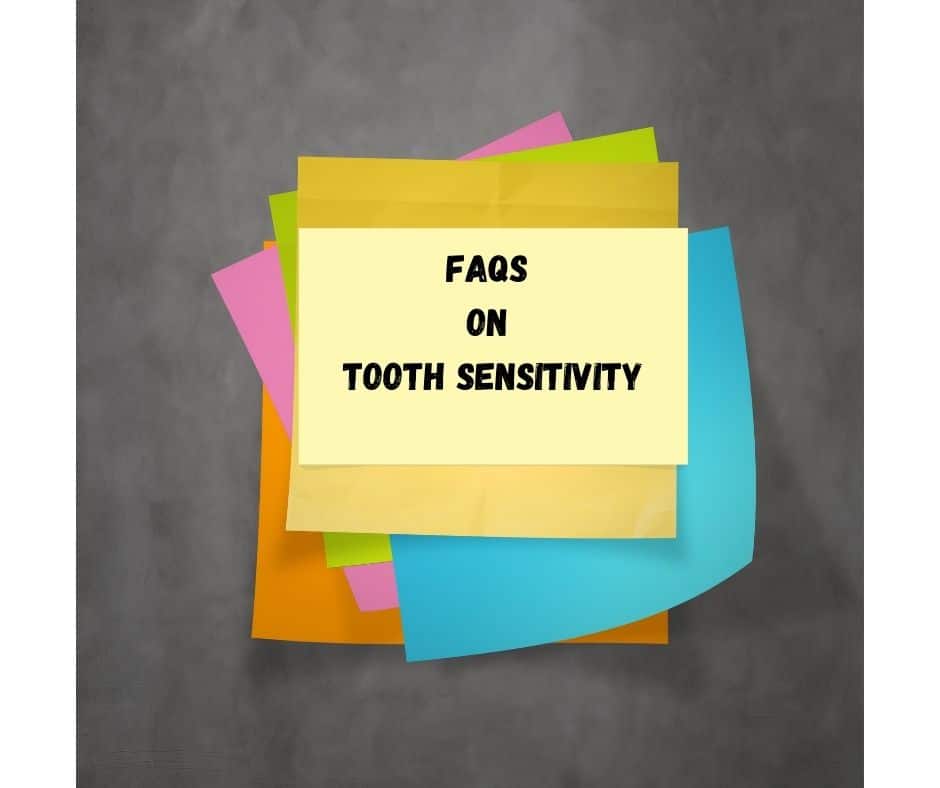
Can tooth sensitivity be a sign of a serious dental issue?
Yes, tooth sensitivity can indicate underlying dental problems, such as cavities, gum disease, or tooth fractures. If sensitivity persists or worsens, it’s essential to consult a dentist for an evaluation.
Is tooth sensitivity common, and who is most at risk?
Tooth sensitivity is relatively common and can affect people of all ages. However, individuals with gum recession, worn enamel, or a history of dental work are more at risk. Those who frequently consume acidic foods or beverages may also experience increased sensitivity.
Can certain foods or drinks make tooth sensitivity worse?
Yes, certain foods and beverages can exacerbate tooth sensitivity. Acidic foods (like citrus fruits and tomatoes), hot or cold drinks, and sugary snacks can trigger discomfort in sensitive teeth.
Is it safe to use desensitizing toothpaste long-term?
Desensitizing toothpaste is generally safe for long-term use. However, if you do not notice improvement in your sensitivity after several weeks, you should consult your dentist to explore other treatment options.
Can oral hygiene practices affect tooth sensitivity?
Yes, improper brushing techniques (such as brushing too hard) or using a hard-bristled toothbrush can contribute to enamel wear and gum recession, increasing tooth sensitivity. It’s essential to use a soft-bristled toothbrush and gentle brushing techniques.
Will tooth sensitivity go away on its own?
In some cases, tooth sensitivity may improve on its own, especially if it’s caused by temporary factors like a recent dental procedure or minor enamel wear. However, persistent sensitivity should be evaluated by a dentist to determine the underlying cause.
How does aging affect tooth sensitivity?
As people age, the enamel on their teeth may wear down, and gums may recede, exposing the tooth roots. This exposure can lead to increased sensitivity. Additionally, older adults may experience more dental procedures, contributing to sensitivity.
Can stress contribute to tooth sensitivity?
Yes, stress can lead to teeth grinding (bruxism), which can cause enamel wear and tooth fractures, leading to increased sensitivity. Managing stress through relaxation techniques or therapy can help reduce this risk.
Are there any natural remedies for tooth sensitivity?
Some people find relief from sensitivity through natural remedies, such as rinsing with warm salt water, using clove oil for its analgesic properties, or applying a mixture of baking soda and water to neutralize acidity in the mouth. However, these should complement professional dental advice rather than replace it.
What is the best way to prevent tooth sensitivity?
Preventing tooth sensitivity involves maintaining good oral hygiene, using fluoride toothpaste, avoiding excessive consumption of acidic foods and beverages, and addressing dental issues promptly. Regular dental check-ups are crucial for monitoring oral health and preventing sensitivity.
Can sensitivity be a side effect of medications?
Some medications can lead to dry mouth or changes in oral pH, which can contribute to enamel erosion and tooth sensitivity. If you suspect your medication is affecting your teeth, consult your healthcare provider or dentist for alternatives.
Should I avoid dental cleanings if I have sensitive teeth?
No, regular dental cleanings are essential for maintaining oral health and preventing sensitivity. If you are concerned about discomfort during a cleaning, inform your dental hygienist or dentist, who can take steps to minimize sensitivity during the procedure.
Can teeth whitening treatments cause increased sensitivity?
Yes, teeth whitening treatments can sometimes lead to temporary sensitivity, especially if the whitening agent contains hydrogen peroxide or carbamide peroxide. If you experience sensitivity during or after treatment, consult your dentist for advice on how to minimize discomfort.
Is tooth sensitivity more common in certain teeth?
Tooth sensitivity can occur in any tooth, but it is often more prevalent in the canines and molars. These teeth have larger surfaces and may be more susceptible to enamel wear and gum recession, increasing their sensitivity.
How can I differentiate between tooth sensitivity and toothache?
Tooth sensitivity typically occurs in response to specific stimuli, such as hot or cold temperatures, sweet foods, or sour drinks. In contrast, a toothache usually involves persistent pain or discomfort that may not be triggered by specific stimuli. If you’re unsure, it’s best to consult a dentist for an accurate diagnosis.
Can dental treatments lead to long-term sensitivity?
While many dental procedures may cause temporary sensitivity, such as fillings or crowns, long-term sensitivity is uncommon. If sensitivity persists beyond a few weeks after treatment, you should contact your dentist for an evaluation.
Are there any lifestyle changes I can make to reduce tooth sensitivity?
Yes, lifestyle changes can help manage tooth sensitivity. These may include reducing the intake of acidic foods and drinks, practicing good oral hygiene, using a soft-bristled toothbrush, and avoiding teeth grinding through stress management or a nightguard.
Can pregnancy affect tooth sensitivity?
Pregnancy can lead to hormonal changes that may affect gum health and increase the risk of gingivitis, which can contribute to tooth sensitivity. Pregnant individuals should maintain good oral hygiene and visit their dentist for regular check-ups.
Can I use regular toothpaste if I have sensitive teeth?
While regular toothpaste is generally safe to use, desensitizing toothpaste specifically formulated for sensitive teeth may provide more effective relief. If you choose to use regular toothpaste, ensure it contains fluoride to help protect enamel.
Are there any specific oral care products recommended for tooth sensitivity?
Yes, many dental care products are specifically designed for sensitive teeth. Look for toothpaste and mouthwashes labeled as “sensitivity relief” or “desensitizing,” as well as fluoride treatments. Your dentist can recommend specific products tailored to your needs.
Sunshine Smiles Dentistry is a Trusted Dental Clinic in Roswell, GA
At Sunshine Smiles Dentistry, we believe that every smile matters and we are dedicated to providing compassionate, personalized dental care for you and your family. Leading Roswell dentist Dr. Suvidha Sachdeva and our friendly team are here to listen to your concerns and ensure your dental experience is comfortable and stress-free.
Whether you need a routine oral health check-up, dental cosmetic enhancements, or treatment for tooth sensitivity, we strive to help you achieve an attractive, healthy smile that lasts. Reach out to us today, and let us be a part of your journey to optimal dental health. Book your appointment with us online today, or call us at (770) 998-8116 for assistance.
